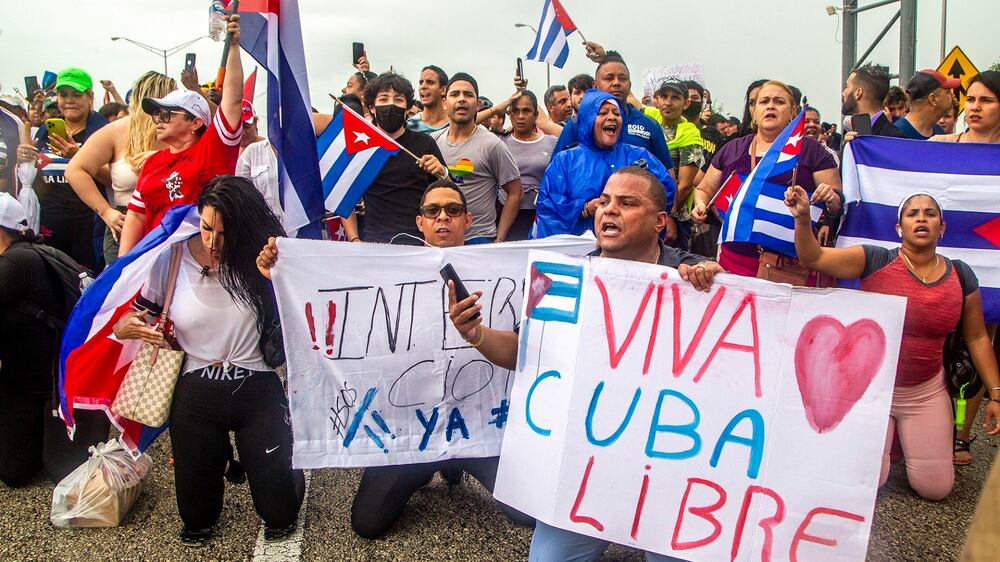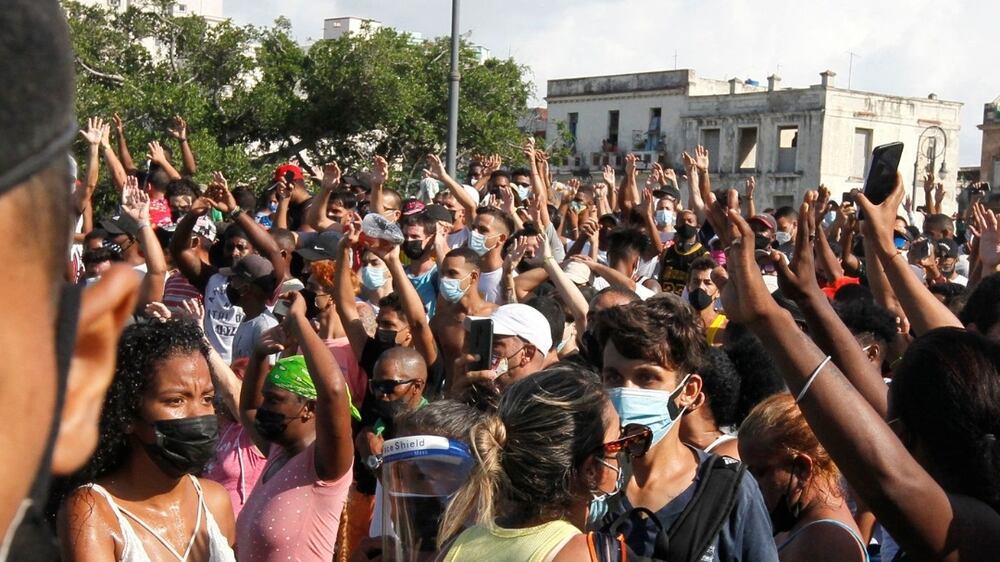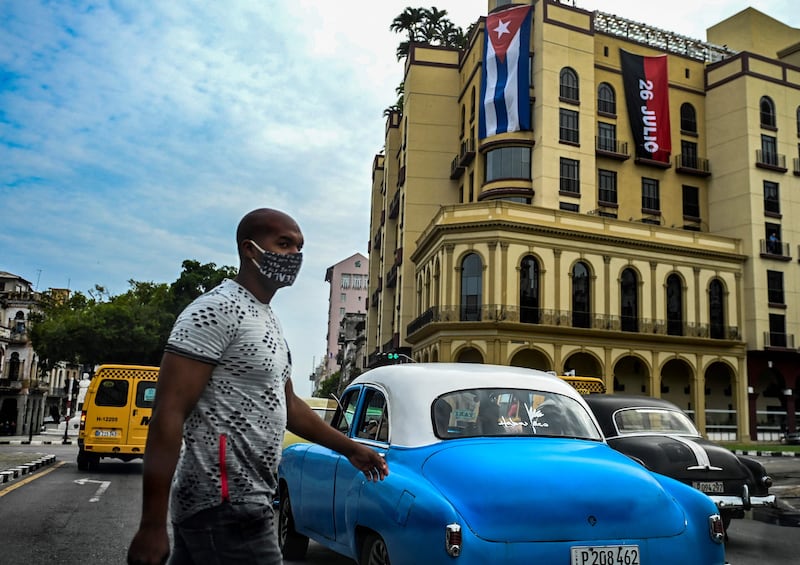One person has died in the anti-government protests occurring in Cuba, officials say, with activists stating at least 100 people have been arrested as overseas solidarity demonstrations continue.
The rallies are the largest since the Cuban Revolution in the 1950s and come as the country endures its worst economic crisis in 30 years, with chronic shortages of electricity, food and medicine as well as a spike in coronavirus infections.
Cuba's San Isidro free speech protest movement this week published a list of 144 people held or reported as disappeared following the demonstrations in dozens of cities and towns.
A 36-year-old man died during a protest on the outskirts of Havana, the Interior Ministry said on Tuesday.
Havana has blamed the show of discontent on the US —which placed sanctions on Cuba in 1962 — pursuing a “policy of economic suffocation to provoke social unrest in the country".
But Washington pointed the finger at “decades of repression” in the one-party communist state.
US President Joe Biden's administration is still reviewing its policy on Cuba and the protests in the communist-run island will have an impact on Washington's approach, the White House said on Wednesday.
The protests “will obviously have an impact on how we proceed,” White House Press Secretary Jen Psaki said at a news briefing.
In Miami and the US capital, Cuban Americans rallied in support of the anti-government demonstrations, with smaller-scale protests also breaking out in Brazil, Ecuador and Uruguay.
Demonstrators chanted “down with the dictatorship” before being dispersed by police in about 40 different locations across Cuba on Sunday, but about 100 protesters again gathered in the capital of Havana on Monday evening, shouting “down with communism".
Relatives and friends of those detained during and after the historic demonstrations engaged in a desperate search for news of their whereabouts.
“They took him from the house, handcuffed and beaten, without a shirt, without a mask,” said a 50-year-old woman who did not wish to give her name, asking after her 21-year-old son at a police station in the capital.
“They took many from the neighbourhood, young and old.”
On Tuesday Cuba's Foreign Minister Bruno Rodriguez denied there had been a “social outbreak”, insisting that the people still support “the revolution and their government".
Demonstrators gather in Miami in support of Cuba protests

Cuba's Catholic Church called for “understanding” in a statement published on the Bishops Conference website, adding “the people have the right to express their needs, desires and hopes".
President Miguel Diaz-Canel met with his retired predecessor Raul Castro and the rest of the Communist Party politburo on Sunday to discuss the protests, Granma, the official newspaper of the country's governing party, said on Tuesday.
Mobile internet was down across Cuba for much of Sunday and on Monday, authorities cut access to major social media platforms, London-based group NetBlocks said.
The US urged Cuba to end the internet restrictions and demonstrate “respect for the voice of the people by opening all means of communication, both online and offline".
Many Cubans are still desperately searching for loved ones.
“They took my daughter [on Monday] and I have had no news of her,” said a woman at a Havana police station.
A young man said his brother, 25, was taken from a neighbour's house. “They gave him a tremendous blow, unjustly, and took him away,” he said.
A police official told worried family members that those arrested had been taken to different detention centres, without providing details of who went where.
Cuba sees biggest anti-government protests for decades

Julie Chung, acting assistant secretary in the US State Department's Bureau of Western Hemisphere Affairs, has called for the “immediate release” of the detainees.
“Violence and detentions of Cuban protesters and disappearances of independent activists … remind us that Cubans pay dearly for freedom and dignity,” she tweeted.
Those being held include dissident Guillermo Farinas, former political prisoner Jose Daniel Ferrer and artist Luis Manuel Otero Alcantara.
Also among those arrested was theatre director Yunior Garcia, a leader of the 27N movement, which arose last year and demanded free speech on the island.
Mr Garcia said on Facebook that he and a group of friends were beaten “and forcefully dragged and thrown into a lorry".
“We were treated like rubbish,” he said, and added that they were taken to a detention centre in Havana where they saw “dozens of young people” arrive. He was released on Monday afternoon.
Camila Acosta, a Cuban correspondent for the Spanish newspaper ABC, was also arrested, the paper's foreign editor said.
Spain urged Cuban authorities to respect the right to protest and demanded Acosta's release.
The last major protests, and the first since the revolution that brought Fidel Castro to power in 1959, were in 1994.
Those were also carried out against economic hardship but were limited to the capital and quickly put down by police.






